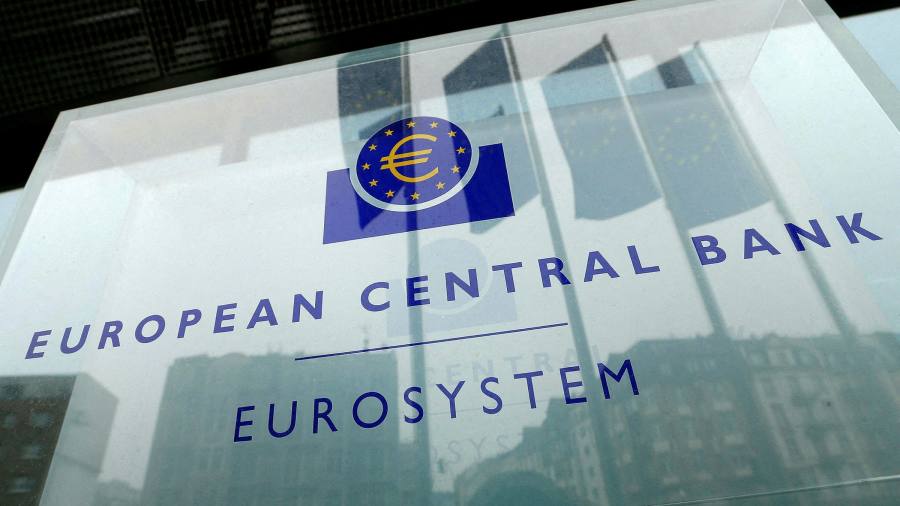The euro hit a nearly two-year low this week as the European Central Bank stuck to plans to gradually taper stimulus measures as it balances record inflation with the economic fallout from the war in Ukraine.
The shared currency fell below $1.08 for the first time since May 2020 following Thursday’s central bank monetary policy meeting and stayed near that level on Friday. The euro is down nearly 5 percent against the dollar so far this year, contributing to a 6.9 percent drop in 2021.
The ECB decided to leave interest rates on hold as expected following its latest monetary policy meeting, but President Christine Lagarde noted that “downside risks to the growth outlook have increased significantly as a result of the war in Ukraine”. Inflation will remain high in the coming months, mainly due to rising energy costs, she added.
Carsten Brzeski, head of macro at ING Research, attributed the currency’s decline to investors being “hasty” in recent weeks, expecting eight rate hikes by the end of 2023.
“Lagarde’s Comments. . . confirmed the rather gradual process of normalization,” he said.
The central bank said economic data released since its last meeting “reinforces its expectation” that its asset purchase program (APP) should end in the third quarter of the year.
Despite this, Frederik Ducrozet, a strategist at Pictet Wealth Management, said the currency’s drop was due to the lack of a “strong indication or firm commitment” from Lagarde that the APP would end in June. “This is a reaction to the positioning of the markets in the run-up to the conference,” he said.
Inflation in the euro zone has risen over the past year, with price growth hitting 7.5 percent last month. Both the US Federal Reserve and Bank of England have already started raising interest rates to dampen the surge in prices, but the ECB has indicated it must first halt its bond purchases before raising borrowing costs.
ECB policymakers must also grapple with the fallout from the war in Ukraine, which is expected to take an outsized toll on the European economy.
“The war-implied supply shock implies a difficult compromise for the governing council amid weaker growth and higher inflation,” Goldman Sachs analysts noted. The investment bank expects the ECB to hike rates in September but said a hike in July is not out of the question if inflationary pressures pick up.
The ECB’s relatively dovish stance failed to stem selling in the bloc’s bond markets. The German 10-year Bund yield rose 0.13 percentage points to 0.84 percent this week after starting the year at -0.18 percent.
US Treasuries also took a hit this week, with the 10-year yield rising 0.12 percentage points to 2.83 percent.
Earlier this week, weaker-than-expected US core inflation data released earlier this week had prompted investors to dampen expectations of how aggressively the US Federal Reserve would hike rates, prompting a rally in bond prices. However, in an interview on Thursday, John Williams, President of the New York Branch of the Federal Reserve, stressed the need to bring interest rates “back to more neutral levels”.
Most European bond and equity markets were closed on Friday for a public holiday. The Wall Street markets were also closed.
The US benchmark stock index S&P 500 fell 2.1 percent this week, and the Nasdaq Composite fell 2.6 percent. Europe’s Stoxx 600 was little changed, while MSCI’s broad gauge of Asia-Pacific equities fell 1.4 percent.

